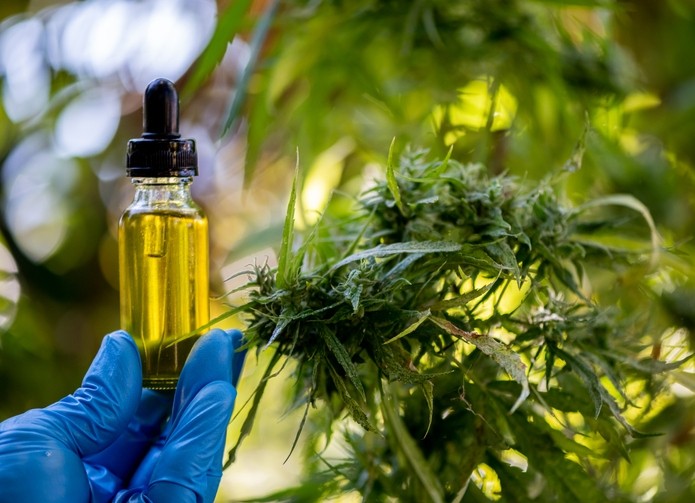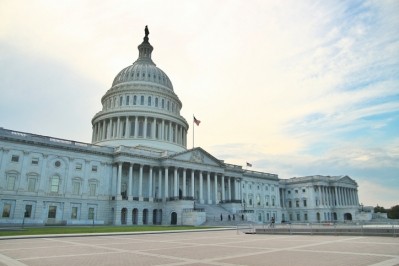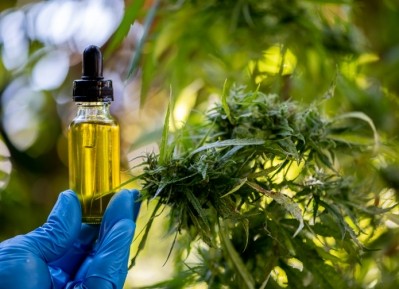Guest article
CRN: Don’t Sell Out DSHEA for CBD

Stakeholders in the dietary supplement industry—manufacturers, marketers, retailers, consumers, and their trade associations—should be resolute that allowing FDA to predetermine the safe levels for a dietary ingredient could create dangerous precedent, not only for CBD and other cannabinoids but for all dietary ingredients in the future.
NDI rejections
FDA’s recent rejection of two separate NDI notifications for full-spectrum hemp extract demonstrates that FDA should not be trusted to set across-the-board pre-market safe levels. Its dismissal of the hundreds of pages of safety data submitted by these two companies illustrates the agency’s indefensible position to ignore the science and set a safety bar that no other supplement is required to meet. FDA’s objection letters don’t bode well for future NDI notifications for hemp extract, but they even more plainly expose what the agency would do if left to its own accord to establish a predetermined safe level.
DSHEA does not authorize FDA to predetermine the “safe” levels of dietary ingredients anyway—period. That has been clear since DSHEA was enacted in 1994. In the case of grandfathered ingredients, the burden is on FDA to demonstrate that the ingredient “presents a significant or unreasonable risk of illness or injury” and then remove it from the market (21 USC 342(f)(1)(A)). In the case of a new dietary ingredient, the manufacturer demonstrates to FDA that the ingredient is reasonably expected to be safe (21 USC 350b); if FDA disagrees, the agency must show that there is inadequate information to provide such reasonable assurance (21 USC 342(f)(1)(B)) and declare the ingredient adulterated.
The law is also clear: “In any proceeding under this subparagraph, the United States shall bear the burden of proof on each element to show that a dietary supplement is adulterated. The court shall decide any issue under this paragraph on a de novo basis” (21 USC 342(f)(1)).
DSHEA struck safety/access balance
These principles were firmly established in DSHEA and have served the industry and consumers well since—a balance struck by Congress in 1994 between access and safety. These principles help preserve consumer access to a wide range of beneficial products and ingredients. Safety is not an absolute concept but rather a continuum based on perceived risks and benefits. The industry establishes safety not only by dosage but by delivery form, manufacturing processes, packaging, and labeling.
So why would consumers or the supplement industry give up that product-specific balancing act with FDA for CBD? CBD is an herbal constituent just like so many other herbal constituents that are properly regulated under DSHEA. FDA does not get to predetermine the safe level of echinacea or saw palmetto or golden seal or red clover. Why start with CBD?
Some wrongly believe that the industry has allowed FDA to set predetermined safe levels before. It has not. In 1973, the Proxmire amendment forbade FDA from declaring vitamins to be drugs based simply on the dosage; the burden was placed on FDA to demonstrate that a specific dosage offered was unsafe.
In 1994, the issue was broader than vitamins when FDA wanted to treat supplements like food additives and require virtual certainty of safety. The passage of DSHEA restored balance between consumer access and safety concerns, and erred on the side of giving consumers the ability to access products for their health unless FDA can demonstrate that there are safety concerns that were not accounted for in a manufacturer’s safety review.
In 2004, FDA had the burden to demonstrate that ephedra presented an unreasonable risk of injury or illness (a burden it ultimately met); the courts did not allow FDA to simply determine its own “safe” level by regulation without meeting its statutory burden of proof.
Even the case of red yeast rice was never about setting a safe level. The issue hinged on whether the levels of monacolin in red yeast rice were the same “article” as the statin prescription version. If FDA officials secretly employed an internal designation that half the statin dose in a prescription drug was considered safe, and therefore not worth prosecution under 321(ff), as was recently suggested at an industry event, that decision was not based in law or reviewed by a court.
FDA authority doesn’t extend to setting ‘safe’ levels
FDA does not have legal authority to set a predetermined “safe” level of dietary ingredients, and saying it does doesn’t make it so. Even when FDA predetermines the permissible dosage of a drug—that’s called premarket approval—it is conducted on a product-by-product basis through new drug applications. The agency should not have broader authority for supplements.
The New Dietary Ingredient notification process assures a product-specific review. It allows manufacturers to present their evidence of safety and persuade FDA that based on the purity, dosage, labeling, and other factors for that product, the new dietary ingredient is reasonably expected to be safe. The objection letters to Irwin Naturals and Charlotte’s Web already evidence FDA’s proclivity for wrongly imposing a too-high standard for safety assurance. Despite FDA’s promises that it would not morph a “reasonable expectation of safety” into a “reasonable certainty of no harm,” that is exactly what the agency appears to be doing.
If a supposedly safe level of CBD was determined across the board and engraved in regulation (or worse, in statute), it would be incredibly difficult to revise that ceiling as the safety data evolves and more evidence of safety becomes available. Likewise, this action would fail to recognize the wide range of indications and claims, precautionary label statements, manufacturing processes, and delivery forms that all factor into whether a particular product is “safe.”
We must treat CBD like any other herbal constituent. We must assure our consumers that we have their backs and won’t give away the foundations of this regulatory framework because a pre-market safe level is politically expedient to get CBD on the market quicker. We must be clear with Congress and FDA that calling for a predetermined safe level of CBD in dietary supplements runs counter to the principles Congress enshrined in DSHEA.
Editor’s note: Steve Mister is the president & CEO of the Council for Responsible Nutrition (CRN).















